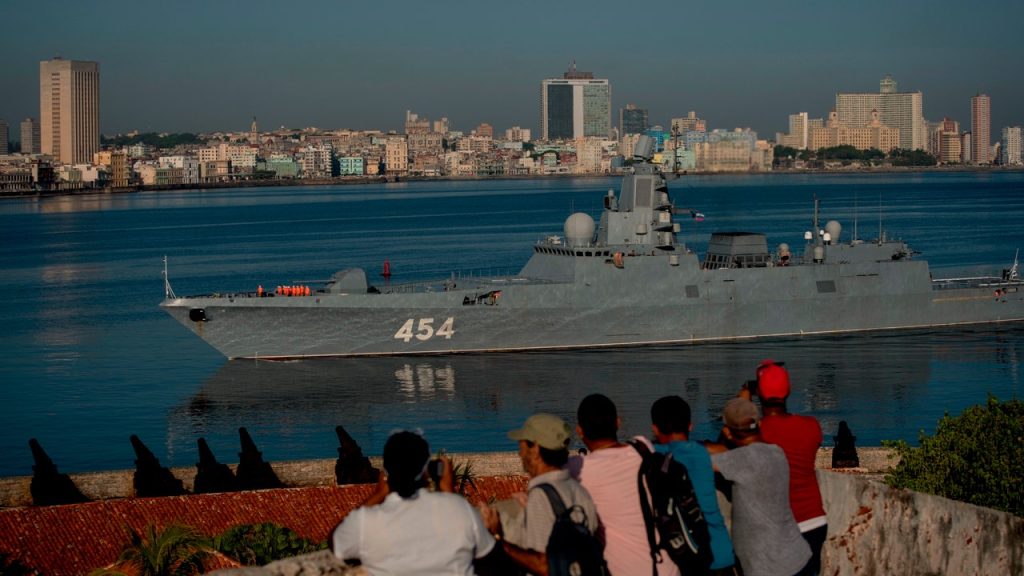Next week, four Russian ships, including a nuclear-powered submarine, are scheduled to arrive in Havana as tensions escalate over Western military support for Ukraine in its conflict with Russia. The Cuban government cited the historically friendly relations between both nations as the reason for the ships’ visit. The Cuban foreign ministry emphasized that none of the ships would carry nuclear weapons and that their presence did not pose a threat to the region. The announcement came shortly after U.S. officials revealed that they were monitoring Russian warships and aircraft heading to the Caribbean for a military exercise in response to American support for Ukraine.
The Russian military presence in Cuba is seen as part of a broader response by Moscow to the United States’ involvement in the conflict between Ukraine and Russia. Russian President Vladimir Putin has hinted at taking “asymmetrical steps” elsewhere in the world in retaliation for President Joe Biden’s decision to allow Ukraine to use U.S.-provided weapons to defend itself against Russian aggression. Despite the notable presence of Russian ships in Cuban waters, U.S. officials downplayed any concerns about the situation. The timing of the ships’ arrival in Havana coincides with heightened tensions between Russia and the West, particularly over the conflict in Ukraine.
The Cuban foreign ministry identified the four Russian ships that would be docking in Havana as the frigate “Gorshkov,” the nuclear-powered submarine “Kazan,” the fleet oil tanker “Pashin,” and the salvage tug “Nikolai Chiker.” During the fleet’s arrival at the port of Havana, a salute to the Cuban nation would be fired from one of the ships, which would be reciprocated by an artillery battery of Cuba’s Revolutionary Armed Forces. The symbolic gesture is intended to reinforce the close bilateral ties between Cuba and Russia and showcase their mutual support in the face of increasing international pressure.
The presence of Russian ships in Cuban waters underscores the strategic alliance between the two countries, rooted in their shared history of socialist ideology and anti-imperialist sentiment. The Cuban government’s decision to host the Russian fleet sends a clear message of defiance against U.S. interference in the region and highlights its solidarity with Moscow in the face of Western aggression. The joint military exercises between the Russian and Cuban armed forces during the ships’ visit serve as a show of force against perceived external threats and reaffirm the strength of their partnership.
As the world watches the unfolding events in Havana, the geopolitical implications of the Russian ships’ visit to Cuba are significant. The show of solidarity between two nations with a history of defying Western influence challenges the existing global power dynamics and signals a shift in alliances that could have far-reaching consequences. The presence of a nuclear-powered submarine in Cuban waters also raises questions about security and stability in the region, as both Russia and Cuba assert their right to defend their interests against external threats. The arrival of the Russian fleet in Havana serves as a reminder of the complex geopolitical landscape and the ongoing competition for influence among major world powers.


